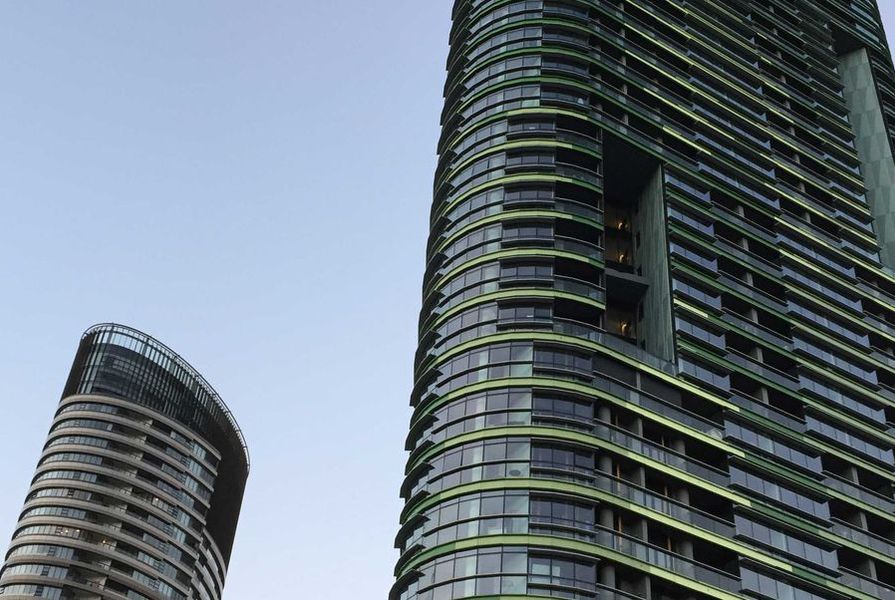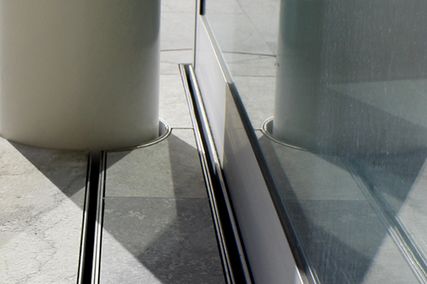The Australian Institute of Architects has once again called on governments to register all building practitioners, in response to the ABC 7.30 series investigating defects in new apartment buildings, which finished airing on 23 October.
The three-part series highlighted the lack of consumer protection for owners of defective apartments, the role of the building surveyor or private certifier and the combustible cladding crisis.
UNSW senior lecturer in architectural construction Geoff Hanmer told 7.30, “You’ve got better protection if you buy a toaster than if you buy a unit. If something does go wrong there’s really nobody to turn to.”
He said that decades of deregulation in the building industry has led to “astonishing failure.”
“As buildings get more complex, become taller, it’s important to have eyes on the site with people actually inspecting what the builders are doing. Builders try to make a profit, and sometimes they’ll do that by cutting corners if nobody stops them.
“It’s almost incomprehensible that government has had an agenda to reduce regulation at a point where buildings have become more complex and probably require a higher standard of regulation.”
In June 2019, researchers Nicole Johnston of Deakin University and Sacha Reid of Griffith University released a report looking into defects in residential multi-owned properties. The study examined 212 defect audit reports from Victoria, NSW and Queensland which contained a total of 3227 line item defects. Their analysis found across 212 buildings, on average, 85 percent had at least one defect across multiple locations.
The study was funded by strata and body corporate management company Pica Group with data supplied by engineering and building consultants.
The Australian Institute of Architects NSW chapter president Kathlyn Loseby, who also appeared on the 7.30 program, said, “I think the most important thing is that we put consumers at the forefront of all consideration and discussion. That will help drive better building outcomes and better accountability.”
In response to the 7.30 series, the Institute’s national president Helen Lochhead said, “Quality outcomes will not occur and the consumer will not be protected, if time and cost continue to be the prime drivers in the construction industry.
“There must be increased accountability and that’s why the Institute wants to see a nationwide requirement for the registration of all building practitioners, in the same way architects are.
“For large projects we need independent eyes onsite the whole way through and this is why the Institute has been calling for the reinstatement of a clerk of works.”
The Institute welcomed both the introduction of the NSW Design and Building Practitioners Bill 2019 as well as the Victorian government’s $600 million funding package to rectify building with high risk cladding, but called on more reforms to prevent defective buildings in the future.
Victorian chapter president Amy Muir said better regulation of novation is one reform that could prevent adverse outcomes. The Victorian results of a national survey of novation showed that “novation can, in the majority of cases, have a negative impact on the finish and durability of projects and architects’ ability to deliver quality outcomes for the general public and end user,” she said.
“Severing that direct relationship with the client and making all other building practitioners subordinate to the building contractor can lead to negative outcomes.”
“A better legislated, industry-wide novation code is needed if we are serious about putting people first, protecting consumers and ensuring the homes of the future are built for safety and quality.”
According to 7.30, the crisis of confidence in the construction industry as a result of high profile defective buildings, such as Opal or Mascot towers in NSW, has had a negative impact on the sale of off-the-plan and new apartments.
Geoff Hanmer said on the program that he would not advise prospective owners to buy a new apartment – echoing a sentiment expressed by Bronwyn Weir, co-author of the Building Confidence report on Four Corners earlier this year.
However, Helen Lochhead stressed that despite systemic issues in the industry, many reputable buildings are delivering high quality apartments.
“While trust may understandably have been shaken, consumers do still have access to new building stock in which they can have confidence.”
















